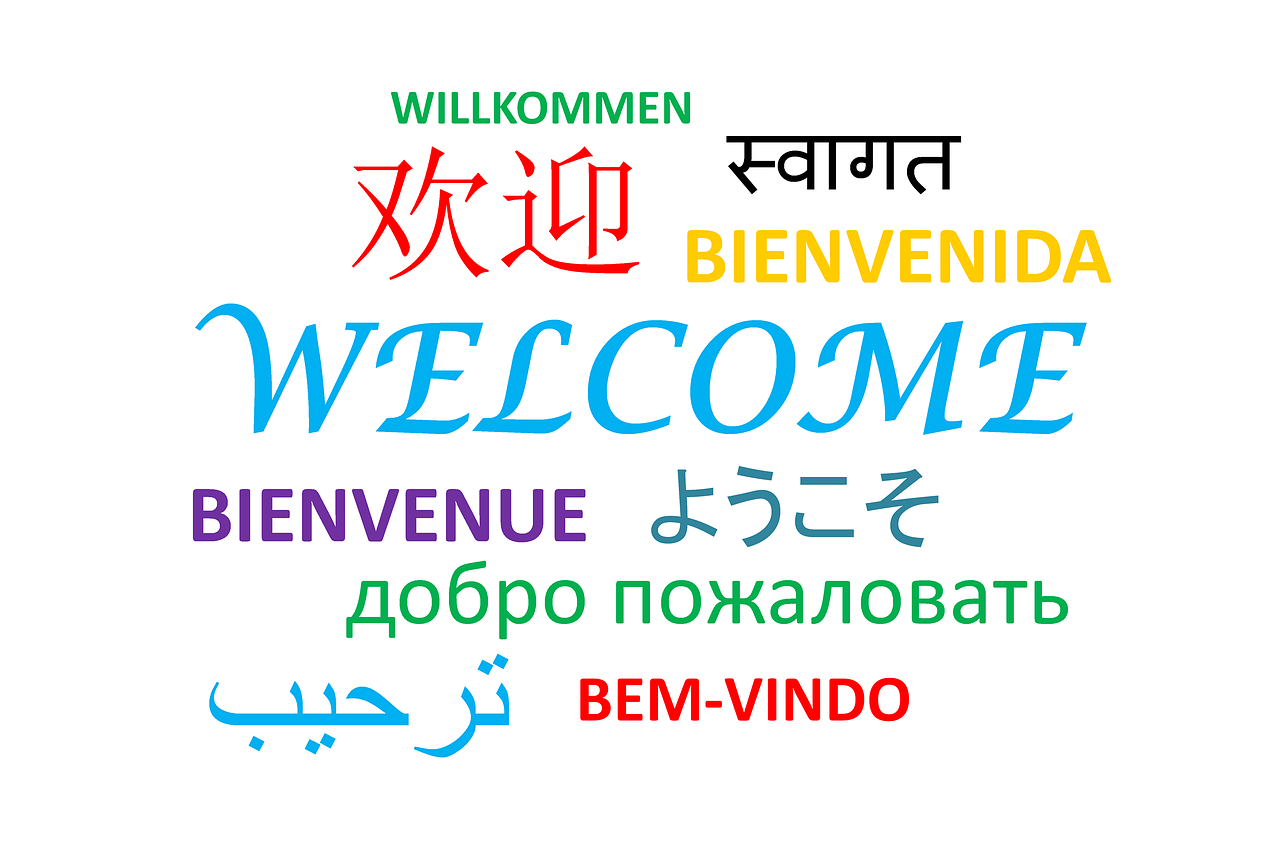Top 6 most influential languages worldwide

Language is more than just a means of communication; it’s a powerful tool that shapes global interactions, cultures, and economies. Understanding the most influential languages worldwide can provide insights into global power dynamics, cultural exchanges, and economic trends.
However, what makes a language influential? It’s a blend of historical significance, economic power, cultural impact, and global reach. Let’s explore the top six languages that wield significant influence around the globe and will be more than enough for your future ventures.
The article outlines why the following six languages are considered influential. It discusses five key aspects: travel utility, business and job opportunities, cultural enrichment, educational significance, and global communication. Then, it provides ratings for each language based on these criteria, emphasizing the importance and impact of each language in different domains.
Table of contents
- German: The Language of Innovation and Engineering
- Arabic: The Language of the Middle East and Islam
- French: The Language of Diplomacy and Culture
- Spanish: The Language of the Americas and Beyond
- Mandarin Chinese: The Language of the Future
- English - The global Llingua Franca
- Conclusion
6. German: The Language of Innovation and Engineering
Number of speakers – 97.36 million

German is known for its association with precision and innovation. Germany’s strong presence in engineering, technology, and science has cemented German’s status as a key language in these fields.
Traveling:
German is particularly useful for traveling in Germany, Austria, and Switzerland.
Knowledge of German facilitates better communication with locals, easier navigation, and a more immersive travel experience in these regions.
Business Opportunities:
German is essential for business in the European Union, especially in engineering, technology, and manufacturing sectors where Germany excels. Proficiency in German enhances business opportunities and partnerships within Europe’s largest economy.
Job Opportunities:
There is high demand for German speakers in engineering, technology, and multinational companies operating in German-speaking countries.
Proficiency in German can lead to career opportunities in these high-demand sectors, as well as in academia and research.
Cultural Enhancement:
German provides access to a rich cultural and intellectual heritage, including influential literature, philosophy, and music.
Understanding German allows for deeper engagement with the works of Goethe, Nietzsche, and classical composers like Beethoven and Bach.
International Communication:
German is an important language within the European Union and is used in international business and diplomacy.
While not as widespread globally, proficiency in German is valuable for communication within Europe and in specific global sectors where German expertise is prominent.
Language influence rating
Traveling: 3/5 – Useful in Germany, Austria, and parts of Switzerland, but less so globally.
Business Opportunities: 4/5 – Crucial for engineering, technology sectors, and business within the EU.
Job opportunities: 4/5 – High demand in engineering, technology, and multinational companies in German-speaking countries.
Cultural enhancement: 3/5 – Access to influential thinkers, classical music, and cultural events.
International Communication: 3/5 – Important within Europe but less so globally.
5. Arabic: The Language of the Middle East and Islam
Number of speakers – 379.01 million

Arabic holds a special place in global history and culture. As the liturgical language of Islam, Arabic is vital for millions of Muslims around the world. Its influence extends beyond religion to areas such as science, mathematics, and philosophy, with Arabic-speaking scholars contributing significantly to these fields in the Middle Ages.
Traveling:
Knowledge of Arabic is particularly useful for traveling in the Middle East and North Africa.
It facilitates better communication with locals, deeper cultural understanding, and smoother navigation through regions where Arabic is the predominant language, enhancing the overall travel experience.
Business Opportunities:
Arabic is crucial for business operations in the Middle East, a region with dynamic and growing economies. It is particularly important in sectors such as oil and gas, finance, and construction. Understanding Arabic allows for better business negotiations and partnerships in these markets.
Job Opportunities:
Proficiency in Arabic opens job opportunities in various fields including translation, international relations, and business.
There is also a demand for Arabic speakers in sectors like education, healthcare, and government services, particularly in regions with significant Arabic-speaking populations.
Cultural Enhancement:
Arabic provides access to a rich cultural and literary heritage. From classical works like “One Thousand and One Nights” to modern Arabic literature and poetry, the language offers deep cultural insights.
Additionally, understanding Arabic enhances appreciation of Islamic art, architecture, and cultural practices.
International Communication:
Arabic is one of the six official languages of the United Nations and is widely used in international diplomacy and global media.
Proficiency in Arabic enhances communication and understanding in international relations, particularly in the Arab world and among Islamic nations.
Language influence rating:
Traveling: 3/5 – Useful in the Middle East and North Africa, but less so globally.
Business Opportunities: 4/5 – Important for business in Middle Eastern countries and Islamic finance.
Job opportunities: 3/5 – Demand in specific fields like translation, international relations, and business in the Middle East.
Cultural enhancement: 3/5 – Access to classical and modern literature, poetry, and Islamic culture.
International Communication: 3/5 – Significant in the Arab world but limited outside these regions.
4. French: The Language of Diplomacy and Culture
Number of speakers – 321 million
French is often associated with diplomacy and high culture. Historically, French was the language of the European aristocracy and remains a major diplomatic language. Its influence is seen in many international organizations, such as the United Nations and the European Union, where French is one of the official languages.
Traveling:
French is widely spoken in Europe, Africa, and parts of Canada, making it a valuable language for travelers.
It enables easier communication with locals, better navigation of French-speaking regions, and a richer travel experience through deeper cultural interactions.
Business Opportunities:
French opens doors to business opportunities in Francophone countries across Europe and Africa.
It is particularly valuable in international organizations and sectors like luxury goods, fashion, and international trade, where French is commonly used.
Job Opportunities:
There is high demand for French speakers in international organizations, diplomacy, and multinational companies.
Proficiency in French is also valuable in industries such as education, healthcare, and tourism, expanding job prospects in French-speaking regions.
Cultural Enhancement:
French provides access to a rich cultural heritage, including world-renowned literature, art, and philosophy.
From the works of Voltaire and Camus to contemporary cinema and fashion, French enhances cultural appreciation and intellectual engagement.
International Communication:
French is an official language of the United Nations, the European Union, and many other international organizations.
It is widely used in international diplomacy and global forums, making it an important language for cross-cultural communication and international relations.
Language Influence Rating:
Traveling: 4/5 – Widely spoken in Europe, Africa, and parts of Canada, useful for traveling in these regions.
Business Opportunities: 3/5 – Important in Francophone African markets and international organizations.
Job opportunities: 4/5 – High demand in international organizations, diplomacy, and Francophone countries.
Cultural enhancement: 4/5 – Enhances appreciation of art, cuisine, fashion, and influential literature and philosophy.
International Communication: 4/5 – Used extensively in international diplomacy and organizations.
See more:
3. Spanish: The Language of the Americas and Beyond
Number of speakers – 600 million

Spanish, with its rich history and widespread use, is a major global language. The expansion of the Spanish Empire historically spread the language across continents, creating a significant cultural and linguistic presence in Latin America and Spain.
Traveling:
Spanish is an invaluable asset for travelers visiting Spain, Latin America, and even parts of the United States.
In Spanish-speaking regions, knowing the language enhances the travel experience by allowing deeper interaction with locals, better understanding of cultural nuances, and easier navigation through daily activities and tourism.
Business Opportunities:
Spanish opens significant business opportunities in Latin America, a region with rapidly growing markets.
Additionally, the large Hispanic population in the United States represents a vital consumer market. Businesses looking to expand or operate in these regions benefit greatly from Spanish proficiency, enhancing market reach and engagement.
Job Opportunities:
There is a high demand for Spanish speakers in various sectors such as education, healthcare, customer service, and international trade.
In the United States, Spanish is particularly valuable due to the substantial Hispanic population, creating numerous job opportunities for bilingual professionals.
Cultural Enhancement:
Spanish offers access to rich and diverse cultural experiences.
The language unlocks the door to an extensive body of literature, from the works of Cervantes to contemporary Latin American authors. Additionally, Spanish-speaking countries boast vibrant traditions in art, music, and dance, enriching cultural appreciation.
International Communication:
Spanish is one of the most spoken languages globally, with over 500 million native speakers.
It is an official language of the United Nations and other international organizations. Proficiency in Spanish enhances communication in a wide range of international contexts, from diplomacy to global business.
Language influence rating:
Traveling: 4/5 – Widely spoken in Latin America and Spain, useful for traveling in these regions.
Business Opportunities: 4/5 – Important for business in Spanish-speaking countries, especially in Latin America.
Job opportunities: 4/5 – High demand in the US and Latin America, especially in customer service, education, and healthcare.
Cultural enhancement: 4/5 – Rich cultural experiences through literature, art, and music from Spain and Latin America.
International Communication: 4/5 – One of the most spoken languages globally, facilitating communication in many regions.
2. Mandarin Chinese: The Language of the Future
Number of speakers – 1.35 billion

Mandarin Chinese is increasingly becoming a key player on the world stage. With over a billion native speakers, Mandarin is not just the most spoken language in terms of native speakers, but also a crucial player in global economics.
Traveling:
Proficiency in Mandarin Chinese significantly enhances travel experiences in China and Chinese-speaking regions.
It allows travelers to navigate local customs, understand cultural practices, and communicate more effectively with locals, making travel more immersive and rewarding.
Business Opportunities:
China’s position as the world’s second-largest economy makes Mandarin essential for business. Proficiency in Chinese opens doors to numerous opportunities in trade, manufacturing, technology, and finance.
It is crucial for anyone looking to engage with Chinese companies or operate within China’s vast market.
Job Opportunities:
The demand for Mandarin speakers is high in international business, especially in sectors like technology, manufacturing, and trade.
Proficiency in Chinese can lead to career opportunities in multinational companies, government agencies, and organizations that have dealings with China.
Cultural Enhancement:
Chinese provides access to a rich cultural heritage that includes ancient philosophy, literature, and arts.
Understanding Mandarin allows individuals to explore the depth of Chinese traditions, from Confucian texts to contemporary cinema, enhancing cultural appreciation and knowledge.
International Communication:
Mandarin Chinese is becoming increasingly important in global communication, particularly in business and diplomacy.
While not as widespread as English, Mandarin’s significance is growing alongside China’s influence on the global stage.
Proficiency in Mandarin enhances international relations and cross-cultural communication.
Language Influence rating
Traveling: 3/5 – Primarily useful in China and Chinese-speaking regions.
Business Opportunities: 5/5 Crucial for engaging with China’s economy, the second-largest in the world.
Job opportunities: 4/5 High demand for Mandarin speakers in international business and companies dealing with China.
Cultural enhancement: 4/5 – Provides insights into China’s rich history, philosophy, and cultural practices.
International Communication: 3/5 – Increasingly important but not as widely used outside Chinese-speaking regions.
1. English - The global Llingua Franca
Number of speakers – 1.46 billion

English stands out as the most influential language in the world today. This prominence stems from its historical roots in the British Empire and its continued dominance through the United States’ global influence.
Traveling:
English is the most widely spoken second language worldwide, making it incredibly useful for travelers.
Whether navigating airports, booking hotels, or exploring tourist attractions, proficiency in English simplifies these interactions. Many countries have English signage and offer English-speaking services, making travel smoother and more enjoyable.
Business Opportunities:
English is the predominant language in international business. Major global corporations, particularly in finance, technology, and trade, use English for their operations.
Mastery of English opens up numerous business opportunities and facilitates partnerships with international firms, enabling professionals to engage in global markets effectively.
Job Opportunities:
Fluency in English is often a key requirement for high-paying jobs in multinational companies. It is essential for careers in international trade, diplomacy, and global organizations.
Additionally, many leading industries, such as tech, healthcare, and engineering, prioritize English proficiency, thus expanding job prospects significantly.
Cultural Enhancement:
English provides unparalleled access to a wealth of cultural resources. From classic literature and world-renowned films to contemporary music and digital content, English-language media offers diverse cultural insights.
Understanding English allows individuals to appreciate cultural contributions from different English-speaking countries.
International Communication:
English is the primary language of international diplomacy, science, and academia. It is the working language of major international organizations, such as the United Nations and the European Union.
Proficiency in English enables effective communication and collaboration across borders, fostering international relationships and understanding.
Language influence rating:
Traveling: 5/5 – Widely spoken around the world, making travel easier in many countries
Business Opportunities: 5/5 – English is the primary language of international business, used globally
Job opportunities: 5/5 – demand in many industries and multinational companies
Cultural enhancement: 5/5 – Access to diverse cultural content, including literature, films, and media.
International Communication: 5/5 – English is the most widely used language for international communication.
Conclusion
Each of these languages plays a unique role in shaping the global landscape. From English’s dominance in business and technology to Mandarin’s rise as a future powerhouse, Spanish’s cultural influence, French’s diplomatic importance, Arabic’s religious and political significance, and German’s contributions to innovation, these languages represent more than just means of communication – they are integral to understanding global power dynamics.
By learning these languages, you will open up numerous opportunities and undoubtedly become a valuable individual in whatever field you choose. Don’t hesitate and start now!
Read:
Number of speakers – 1.46 billion
Number of speakers – 1.46 billion





